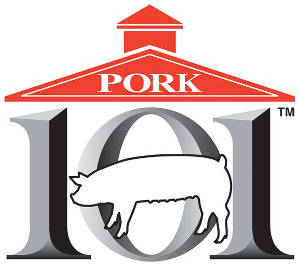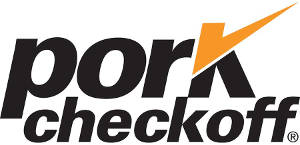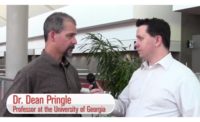The American Meat Science Association (AMSA) PORK 101 program launched in fall, 1997, and 21 years later continues to offer insight into the pork industry; over that span of time shaping, influencing, and guiding over 2,000 people. The concept of PORK 101 started with a discussion among various AMSA members, as there was a need for basic pork information shared within the industry. So, a group of AMSA member came together to create the content and material to bring this information to the forefront, and made it available for the people within the industry. This program brings tremendous value to everyone that attends, as it provides general knowledge that enables individuals to go back and do their jobs even better. It also gives them the fundamentals and the ability to teach and train those around them, making the impact even greater.
PORK 101 is hosted by AMSA in cooperation with the National Pork Board, and over the years has received support numerous times from our sponsors Merck Animal Health and Elanco Animal Health. AMSA also receives additional support in promoting and marketing our program from our co-sponsors the American Association of Meat Processors (AAMP), North American Meat Institute Foundation (NAMIF), the Southwest Meat Association (SMA), the Canadian Pork Council (CPC), and the Canadian Meat Science Association (CMSA).

The two-and-a-half-day, hands-on workshop is led by AMSA members at various universities including, Texas A&M University, Iowa State University, Oklahoma State University, the University of Nebraska, the University of Missouri, the University of Illinois, and most recently added the University of Florida, which will host its first course this March. AMSA has also hosted this course in Canada at Maple Leaf Foods and Conestoga Meat Packers.
Attendees learn about the value differences in swine, pork carcasses, pork primals, and processed pork products from meat science faculty and AMSA members at each hosting university.
The program features:
- General Production Practices
- Hog Handling
- Grading and Live Hog Evaluation
- Lean Value Pricing
- Quality Management at Slaughter
- Hands-On Pork Slaughter
- Measuring Carcass Quality and Composition
- Hands-On Pork Carcass Fabrication
- Processing Technologies and Hands-On Lab
- Retail and Consumer Hot Topics
Day one begins with a brief introduction discussing with attendees the importance of pork production, quality, pig handling, live evaluation, lean value pricing, defects in pork, as well as a brief overview of the slaughter process and of fabrication 101. This is a lot of content in a short amount of time, but it is all necessary information to prepare the attendees for day two of the course. The instructors plan different activities, including some that are more hands-on to assist in keeping attendees engaged and excited about the content.

Day two offers attendees that ability to see firsthand the slaughter and fabrication processes. Attendees are divided into groups and begin the day with a tour of the facility to see where and how things will take place once the slaughter process begins. This tour is led by faculty, staff and the AMSA instructors. This is a great opportunity not only for the participants, but also for the instructors who are then able to help the participants understand the whole process and through this why things are done the way they are. Instructors work closely with attendees to assist them in the slaughter process and answer any questions they may have. Having attendees fully participate in the slaughter and fabrication of carcasses is always a great learning and refreshing tool - even for those more experienced attendees.
On the final morning of the course, the grills are fired up so that attendees can participate in sensory panels using different pork products which have been prepared throughout the course. The AMSA instructors ask attendees to evaluate each sample and determine their overall tenderness, juiciness, and flavor. After each set of samples is evaluated, attendees are asked to share their thoughts on the samples and vote on their preference.
Past attendees of the AMSA PORK 101 Course can attest to the importance of attending:
- “The course gave excellent exposure to raw material market info. Hands-on experience my team would not have received any other way.”
- “This course provides an excellent foundation for anyone and all people working in the pork industry.”
- “Great course! I felt like the hands-on cutting was a great learning tool where I grew more familiar with each of the cuts of pork.”
AMSA will be hosting three courses in 2018 so mark your calendars and make plans to attend today!
- March 5-7 at the University of Florida, in Gainesville, Florida
- May 22-24 at Texas A&M University in College Station, Texas
- October 22-24 at Iowa State University in Ames, Iowa
For more information or questions regarding PORK 101 please visit: www.pork101.org or contact Deidrea Mabry, 1-800-517-2672 or dmabry@meatscience.org.
AMSA fosters community and professional development among individuals who create and apply science to efficiently provide safe and high quality meat defined as red meat (beef, pork and lamb), poultry, fish/seafood and meat from other managed species.



Report Abusive Comment